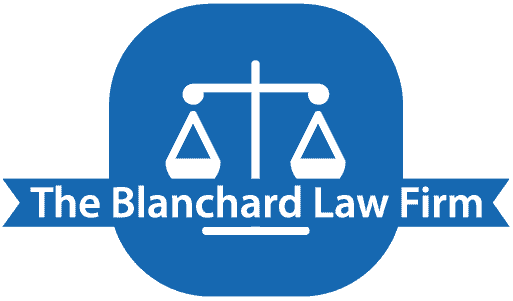
25 Sep Mastering Probate Avoidance in Oklahoma: A Guide
In the intricate landscape of estate planning, understanding the complex probate laws and legislation is critical for every individual, particularly for residents of Oklahoma. With an array of possibilities that could complicate the winding of your estate after your demise, gaining knowledge about when probate becomes necessary and when it can be side-stepped is key. Building a clear understanding of estate planning tools, such as living trusts, joint tenancy, and pay-on-death designations, can be a lifeline in navigating through this legal maze. Furthermore, professional legal assistance plays an elemental role, providing expert strategies tailored to meet your specific circumstances while circumventing probate in Oklahoma
Understanding Probate Laws in Oklahoma
Understanding Oklahoma Probate Laws
Oklahoma probate laws outline the legal process for settling a deceased person’s estate. These laws dictate the court-supervised proceedings that wrap up a person’s financial affairs after his or her death, which may include distributing assets to beneficiaries and settling debts to creditors. Probate can be a costly and time-consuming process, so many people seek to avoid it when planning their estates.
Avoiding Probate in Oklahoma
Avoiding probate in Oklahoma essentially involves ensuring your assets are not left in your sole name at your death, as these will be the ones subject to probate proceedings. Some of the ways to avoid probate in Oklahoma include: joint ownership of assets, pay-on-death accounts and registrations, revocable living trusts, gifts, and certain types of retirement accounts.
Joint Ownership of Assets
If you jointly own assets with someone else, like a spouse or family member, upon your death the asset is transferred to the joint owner, avoiding probate. There are two types of joint ownership: joint tenancy with right of survivorship and tenancy by entirety.
Pay-on-Death Accounts and Registrations
Another way to avoid probate in Oklahoma is to convert your bank accounts and retirement accounts to pay-on-death (POD) accounts. With this type of account, you name a beneficiary who will inherit the account directly upon your death, avoiding probate.
Revocable Living Trusts
Creating a revocable living trust is a common method for avoiding probate in Oklahoma. Assets in a living trust upon the owner’s death are not considered part of the decedent’s probate estate and so they do not have to go through probate court. Instead, they are distributed directly to the beneficiaries named in the trust agreement.
Gifts
Giving away your assets while you are still alive can also help you avoid probate. Since assets you do not own at the time of your death do not have to go through probate, making gifts can be an effective way of circumventing the process.
Retirement Accounts
Finally, certain types of retirement accounts, like 401(k)s and IRAs, offer options to avoid probate. By naming a beneficiary for these accounts, you can ensure the funds are transferred directly to the named individual upon your death, bypassing probate.
Keep in mind that laws vary by state and can change, so it’s important to periodically review your estate plan with an attorney or estate planner to ensure it still serves your needs.

Estate Planning Instruments
Understanding Estate Planning Instruments
One effective way to avoid probate in Oklahoma is to specifically understand the different estate planning instruments. These tools have specific characteristics suitable for different types of properties and situations.
Setting a Living Trust
A living trust is a legal entity created to hold ownership of an individual’s property and assets. The assets placed in a living trust can include real estate, bank accounts, vehicles, and valuable items. By creating a living trust, your assets will not be involved in probate since they technically belong to the trust and not to the deceased. Oklahoma law allows an ‘A-B trust’ scheme to double the federal estate tax exemption for married couples.
Establishing Joint Tenancy
Joint Tenancy is an arrangement where two or more individuals jointly own a property. In Oklahoma, joint estate or joint tenancy is accompanied by a right of survivorship. Therefore, if one owner dies, their property interest automatically passes to the other owner(s) without the need for probate.
Employing Pay-On-Death Designations
Oklahoma law allows you to make a pay-on-death (POD) deed, also known as transfer-on-death or beneficiary deed, for real estate. By this deed, the property automatically passes to the designated beneficiary when the owner dies, bypassing probate. Such designations can also be used for securities, bank accounts, retirement accounts, and vehicles.
Utilizing Life Insurance Policies
Oklahoma allows for the assignment of life insurance policies or annuity contracts to a funeral home. In this case, the benefits are directly payable to the funeral home upon the insured’s death to cover funeral expenses. Such direct assignments mean that this property doesn’t become a probate asset.
Effective Use of Joint Bank Accounts
If you have a joint bank account, the surviving co-owner can take over the entire account when the other owner dies. This distribution of funds doesn’t require probate.
These methods allow probate avoidance when properly employed. However, it would be beneficial to seek legal advice to discuss the implications, costs, and benefits of each method considering specific family circumstances and the value of the estate.

Legal Assistance and Advice
Consult with Legal Professionals
Consulting with legal professionals is an essential step in learning strategies to avoid probate in Oklahoma. Locate reputable, experienced attorneys who specialize in estate planning or probate avoidance. Schedule a meeting and make sure to prepare your questions and information including details of your current estate, your financial status, your lifestyle, and your goals for estate distribution. Acquiring professional advice will not only clarify the legal procedures, but also provide strategies tailored to your specific circumstance.
Understand Estate Planning Strategies
During your engagement with legal professionals, make sure you clearly understand their advice and all suggested estate planning strategies. They might endorse the use of absolute gift giving, joint ownership, or trusts as a way to avoid the probate process. For instance, gifting your assets during your lifetime removes them from your estate, thus escaping probate. Joint ownership allows the property to be transferred to the other owner without probate. Lastly, setting up a trust moves ownership of your assets to the trust, so they will not be part of your probate estate.
Implementing Probate Avoidance Instruments
Once you grasp the instruments available and how they would work within your specific life situation, the next step is implementation. This process may include setting up trust funds, altering bank accounts to joint ownership, or giving away assets outright. It is crucial to follow legal advice precisely and to keep your estate planning documents updated.
Continual Review and Adaptation
Due to the possibility of unavoidable life changes like divorce, death, or birth of new family members, your probate avoidance plans may need adjustments. It’s recommended to review your estate plan every few years, or after significant life events. Communicate any changes to your legal professional to ensure that your estate plan and probate avoidance strategies remain effective.
An essential factor to remember is that every individual’s circumstances are unique. Whether you’re wealthy with multiple businesses and properties, or someone with a modest estate, each situation will require a tailored approach. Therefore, understanding, implementing, and reviewing your estate plan regularly with the guidance of professional advice will ensure a successful probate avoidance strategy in Oklahoma.

Estate and Tax Planning
Understanding Estate Plans and Their Tax Implications
Estate planning is an important practice for any individual looking to protect their wealth for future generations. Essential to this is comprehending how your decisions can impact your tax obligations. In the state of Oklahoma, your estate tax obligations will depend primarily upon the size of your estate and your marital status. Generally, estates valued under $11.7 million are not liable for federal estate taxes, while those exceeding this limit will need to pay a tax rate of around 40%.
Designing a Tax-Efficient Estate Plan
To make your estate plan as tax-efficient as possible, it’s crucial to start by consulting a local tax professional or attorney to understand your current and future tax obligations. An experienced professional can provide guidance on tax laws and provide strategies, including trusts and gifting, to reduce your estate’s tax liability.
Planning with Trusts to Avoid Probate and Minimize Tax Liability
Creating a trust is one of the most common methods to avoid probate in Oklahoma. There are various types of trusts you can set up. For instance, a revocable living trust allows you to retain control of your assets during your lifetime and transfer ownership upon your death without going through probate. As well as avoiding probate, trusts can help minimize estate taxes.
Considering Gifting as a Strategy to Reduce Estate Size
Oklahoma follows the federal gift tax laws, meaning you can gift up to $15,000 per person per year without being liable for gift tax. Making these gifts can reduce the size of your estate, and therefore its potential tax liability. However, remember to take into account your long-term income needs before deciding on a gifting strategy.
Review and Update Your Estate Plan Regularly
Proper estate planning is not a one-time event. It would be best to review your plan routinely, especially with significant life changes such as marriage, divorce, or the birth of a child. Monitoring changes in federal and state tax law is also crucial. You will need to adjust your estate plan accordingly to prevent it from becoming outdated and leading to probate.
Combining estate planning with savvy tax strategies can help preserve your wealth for your loved ones and ensure a smooth, probate-free transition of your estate upon your death.

It is important to bear in mind as well, that your bedrock of estate planning decisions can significantly impact your tax obligations. Aligning your estate and tax planning can not only assist in deftly avoiding the cumbersome probate process but also in steering you through a potential minefield of taxes and maintaining your estate intact for your beneficiaries. Remember, informed decision-making, alongside a bit of professional legal and tax advice, can leave you prepared and at ease, ensuring that your legacy is cared for in Oklahoma, exactly as you intended.

Sorry, the comment form is closed at this time.